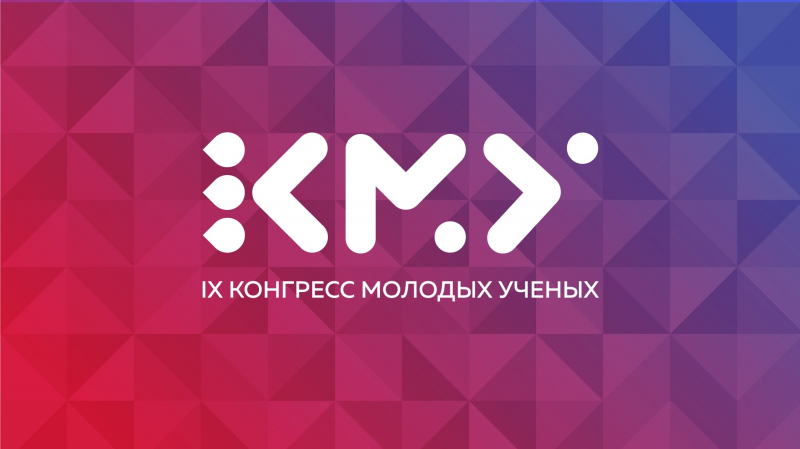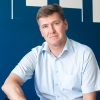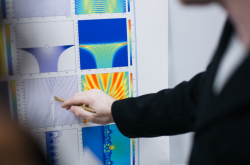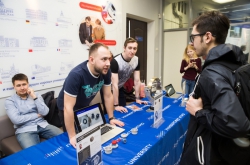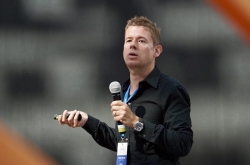The event kicked off with an opening ceremony at 2pm on April 15, with a virtual plenary session on ITMO’s official account on YouTube. The session was supported technically by ITMO’s student media team. First off, Vladimir Nikiforov, Vice Rector for Research, addressed the participants of the Congress with an opening speech. This was followed by lead ITMO researchers presenting their latest R&D projects. One of the presenters, Professor Sergey Makarov, recent winner of the President of Russia Award in Science and Innovation, spoke about the optical properties of resonant semiconductor nanoparticles. Vera Ivanova, PhD student and researcher, spoke about potential sources of beta-glucans and Associate Professor Irina Melchakova gave a short presentation on wireless radio frequency coils for MRI.
The opening plenary session ended with presentations from ITMO University Master’s and PhD students and heads of R&D projects. At this point, the broadcast from 15 April already had over 1,000 views.
Main figures and results of the Congress
The program was divided into 64 different research areas within ITMO’s main fields: biotechnology and cryogenic systems, computer technologies and control, humanities, technological management and innovations, interdisciplinary research, translational information technologies, and photonics.
A special competition was held for prospective Master’s students, where the winners would be awarded automatic enrolment in one of ITMO’s Master’s programs. More than 340 applications were submitted, and 265 won. This competition is certainly not the last opportunity to apply for a Master’s program at ITMO University remotely. You can apply to a special portfolio contest, or the regular way before the program’s application deadline.
School clubs and new records
As part of the Congress, there were 10 special sessions for primary and high school students. Over 140 school students from more than 80 educational institutions applied for the Congress. The online format of the event made it possible for school students from different cities in Russia to participate in the Congress. In previous years, such students applied to participate but weren’t always able to come to St. Petersburg. These students participated from as far as Volgograd, Ekaterinburg, Izhevsk, Yoshkar-Ola, Kirov, Krasnodar, Moscow, Noyabrsk, Tomsk and other cities.
This year, a record was broken in terms of the age of the school participants. In the Ecology and Sustainable Development session, a second grade student, Diana Zalozhnikh, from Zarechnyy in Sverdlovsk region presented her research on the dangers of various types of kid’s toys.
“We would love to be able to meet the participants in person. We would’ve invited them to come to our university’s Assembly hall for the opening and closing ceremony of the Congress, but the current circumstances in the world connected with COVID-19 began to dictate the terms. In this regard, the Congress had to be conducted entirely online,” explains Vladimir Nikiforov, Vice Rector for Research. “To be honest, we were really concerned about the Congress going online. After all, there are almost 2,000 participants, dozens of sessions, a tight schedule, and an official procedure for the contest of research papers. But we managed. To sum up, I’d like to note the huge contribution of the chairs and co-chairs of each of the sessions, moderators, as well as members of the contest commissions who quickly switched to the online mode. Thank you to all participants for their responsible approach to their presentations at such an excellent standard.”
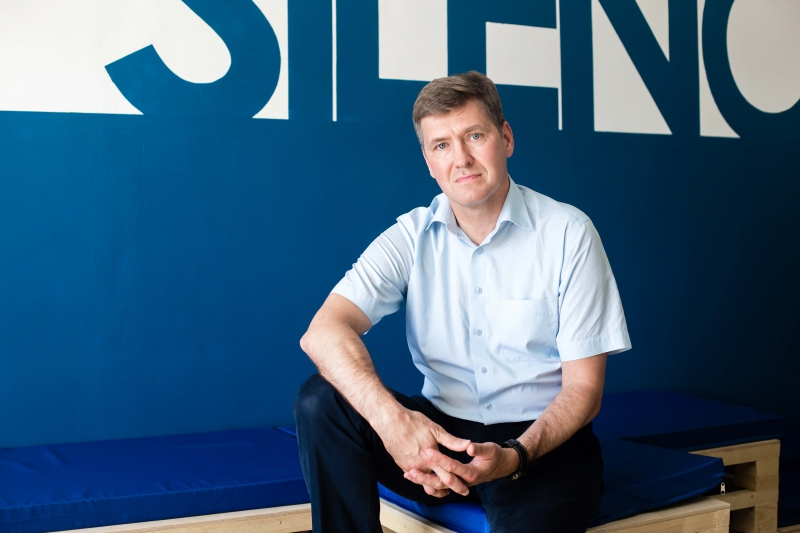
According to Oleg Eliseev, Director of the Center of Student Science, Conferences and Exhibitions, the organizers have been preparing for several months so that the participants could get online and give their presentations in 10 minutes.
“The team of specialists spent days choosing the platform for launching the Congress, so that it would pass with minimal issues. The organizers wrote instructions, prepared volunteers for technical support of meetings, created webinar rooms, and discussed the format of the event. Everyone was very interested in trying out this new online approach,” he says.
The organizers also added that a team of 50 volunteers made a significant contribution to the success of the Congress. Before the Congress, from April 11 to 13, the students were trained on the Zoom online platform, and during the Congress, volunteers quickly came to the aid of moderators, chairs and participants of different sessions, as well as kept order in webinar meeting rooms.
The results of the Congress of Young Scientists are published here (in Russian).
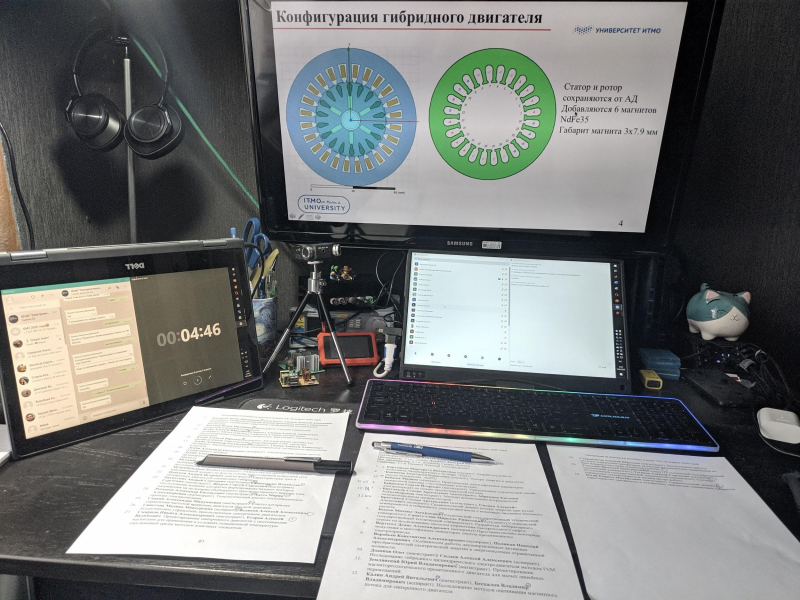
Below you can read more about the results of the first ever online Congress of Young Scientists and the experience of its participants as told by the Chairs of the different sessions.
Sergey Kozlov, Dean, Faculty of Photonics and Optical Information, head of the International Institute “Photonics and Optical Information Technology”
Sitting at home in my office, I really enjoyed chairing three sessions for Bachelor’s students interested in Photonics. Yes, as usual, we discussed the fascinating problems of laser photonics, terahertz technologies, nanotechnology and quantum computer science.
While far from each other, we oddly felt close. We saw each other’s faces closer together. Questions to the speakers were received in abundance in the chat. The quality of presentations was quite good, in my opinion. However, it is not surprising, as the students were aiming to use their presentations to enrol in our School’s Master’s programs without any further entrance exams.
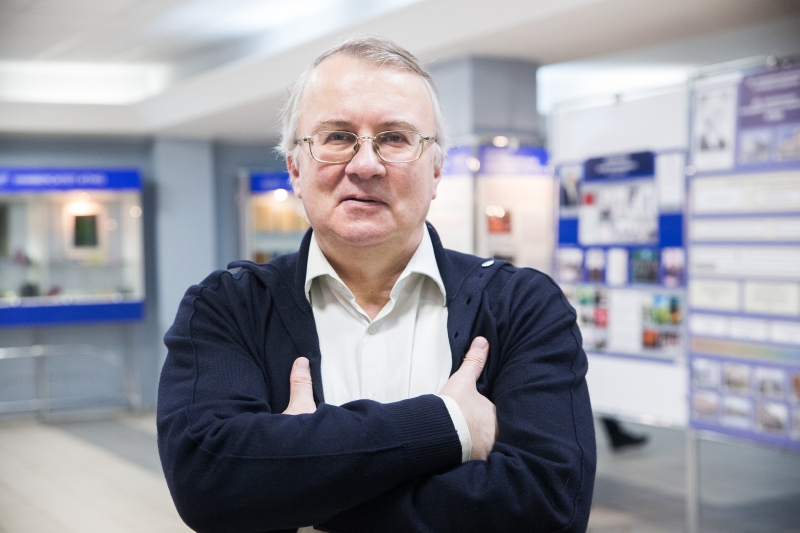
It’s important to note how well the organizing committee worked. The Congress organizing team held a series of workshops for moderators and session chairs. They patiently and clearly explained how to work with the software we were using for the online Congress. I must note that these workshops were very useful for both lecturers and students alike. After all, more than 1,500 students presented. Several dozens of teachers ran the sessions and developed further skills working with Zoom. I won’t be surprised if next year we also hold the Congress online, at least partly. Thank you to all the organizers and participants of the Congress.
Aleksey Bakholdin, head of the Faculty of Applied Optics
Excellent organization in such a difficult situation. Quick operational work of the team of the Center for Student Science, Conferences and Exhibitions. We have found an optimal solution for holding events for everyone in an online format. Everyone had the opportunity to present their research. Participants continue to send positive feedback.
Natalia Gorlushkina, Associate Professor, Faculty of Infocommunication Technologies
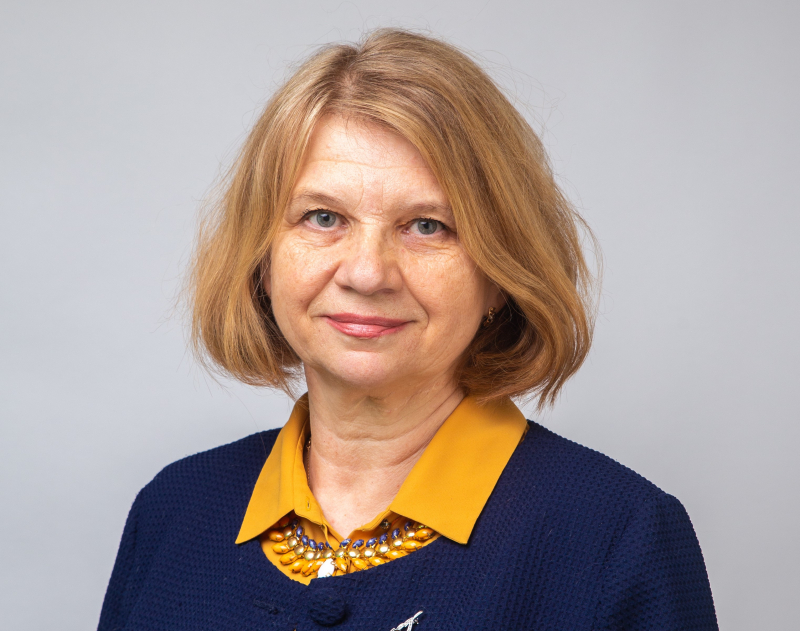
I really liked the experience of working remotely. And it allowed us to plan further expansion of the Congress at an international level. It is now possible to visit more sessions, since before it was necessary to travel between the university’s buildings in the city. It seemed to me that the participants were less nervous this time.
Aleksandr Ishevskiy, Professor, Faculty of Food Biotechnologies and Engineering
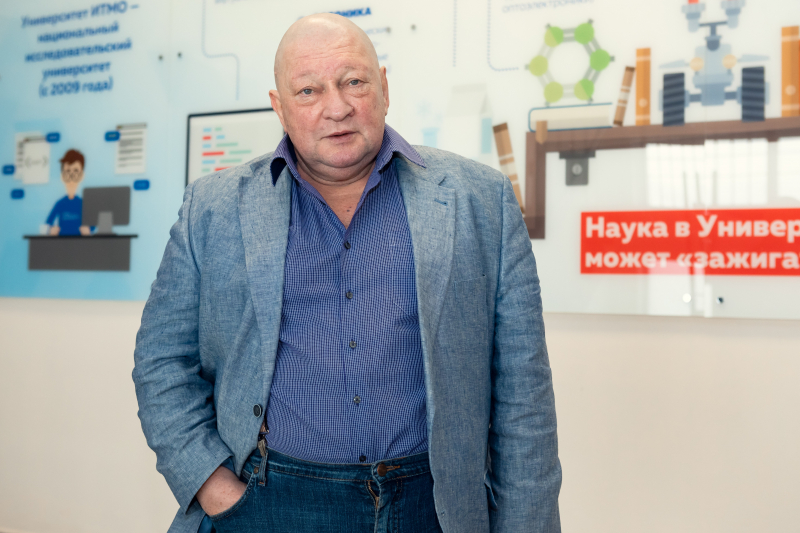
In conditions of self-isolation, conducting the Congress of Young Scientists remotely was simply the only way to hold it. And for a first attempt, it turned out really good! Participants joined us all the way from Vladivostok to Kaliningrad. Holding the conference on ZOOM was quite successful, allowing all the participants of the conference to have an equal chance to talk.
Svetlana Gnezdilova, Director of the Center for Inclusive Education
It is worth highlighting the positive side of the online format of the Congress – the absence of geographic limitations, which allowed students and postgraduates from other cities to take an active part, including students with disabilities or health issues.
Galina Zhirkova, Associate Professor, Director of the Center of Social and Humanities Knowledge at ITMO University
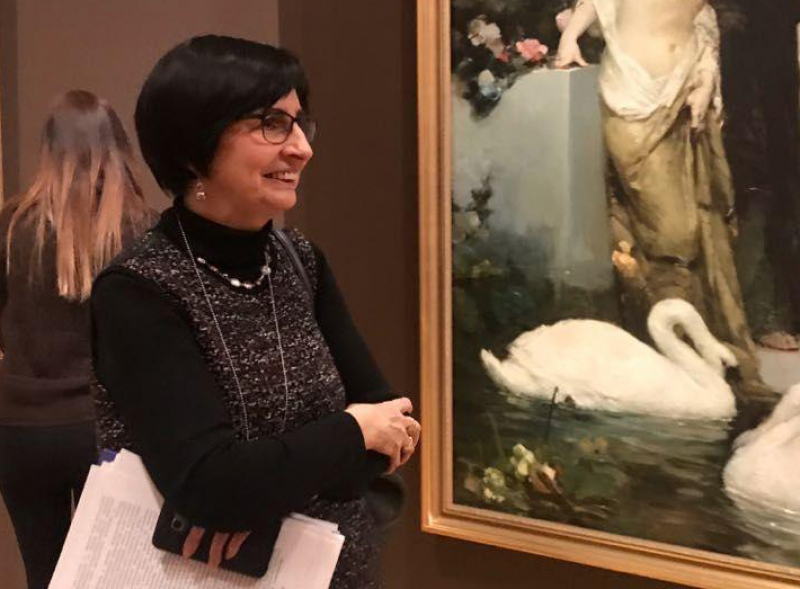
For ITMO’s Center of Social and Humanities Knowledge, holding a conference in this format is an invaluable experience. It should also be noted that this year the humanities were more widely represented at the Congress, 25 papers were selected for the social and humanitarian sciences session and 11 papers for the new technoethics section.
Nikolay Nikonorov, Professor of the Faculty of Photonics and Optical Information
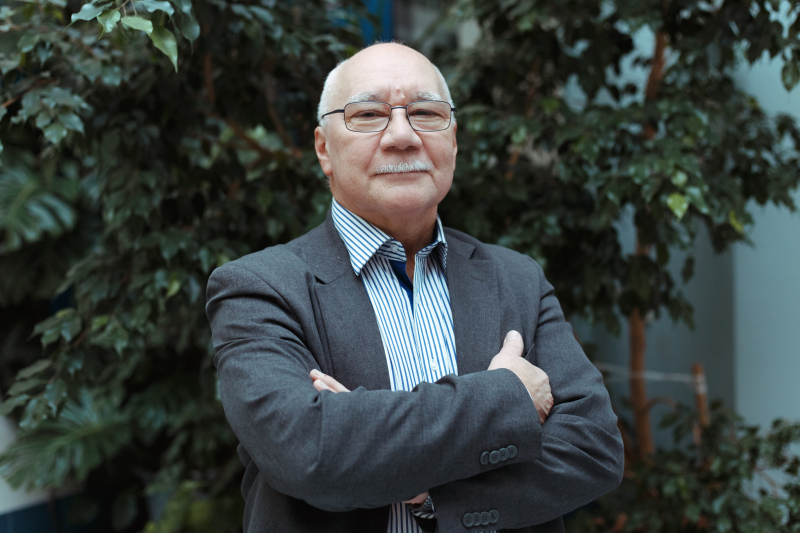
As far as I know, this is the first time ITMO University holds such a large event remotely. The preliminary two-day workshop on training Zoom chairs and moderators was very helpful. At the same time, it should be noted that new online technologies will never replace live communication at the conference, as there is no mood, emotions, atmosphere and live reaction of students, as well as coffee breaks. However, in exceptional cases, such an online form can be used.
Lera Kamalova, Associate Professor, Institute of Psychology and Education, Kazan (Volga region) Federal University
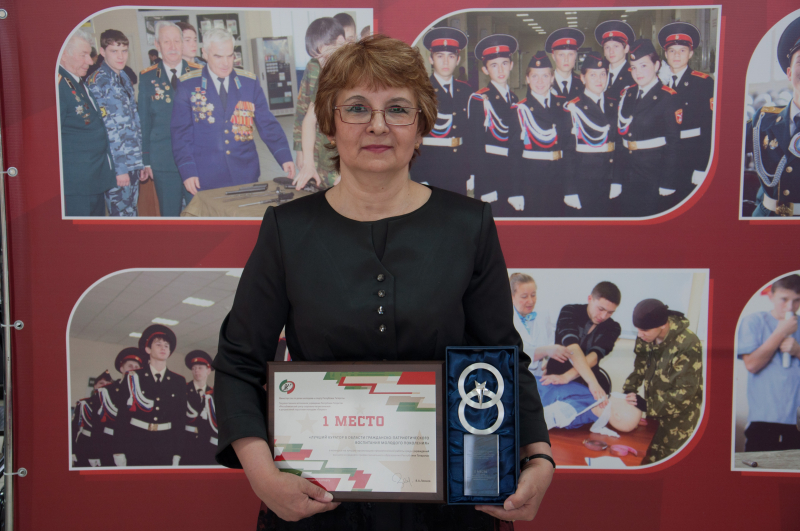
The quality of connection, the conditions for presenting, the organization of projects in each session indicate a high level of preparation for the Congress of Young Scientists, the successful implementation of ITMO Univesity’s digitalization of the education system, and new conceptual approaches to the development of various forms of conferences, forums and congresses. Some of the participants of the IX Congress of Young Scientists specifically expressed their gratitude to ITMO University’s management, for the opportunity to present online, for the tactful and respectful attitude of the jury members to each participant of the Congress.
Olga Sergienko, Associate Professor of the Faculty of Food Biotechnologies and Engineering
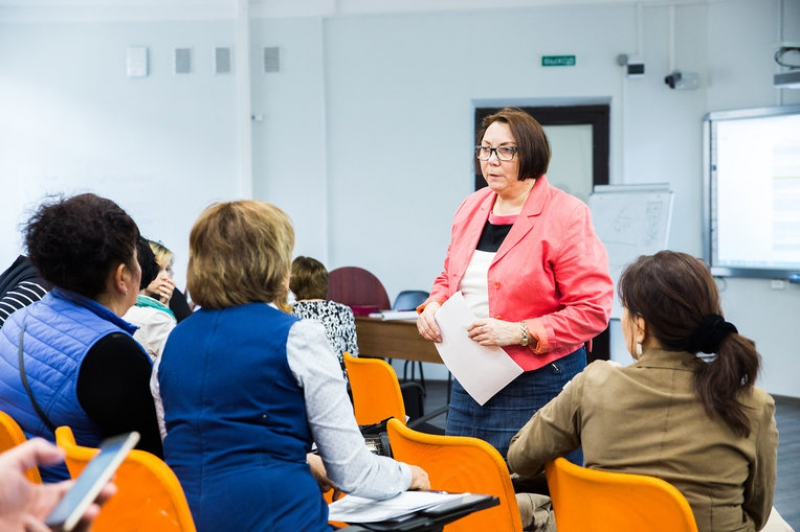
I would like to note the excellent quality of presentations, from both Master’s and Bachelor’s students, in fact part of the work that was presented was carried out by students at their own initiative, and not within the context of their research thesis. I would like to thank the organizers of the Congress for their excellent work!
Nadezhda Tolstoba, Associate Professor, Faculty of Applied Optics, Open Laboratory of Ideas, Methods, and Practices (OLIMP)
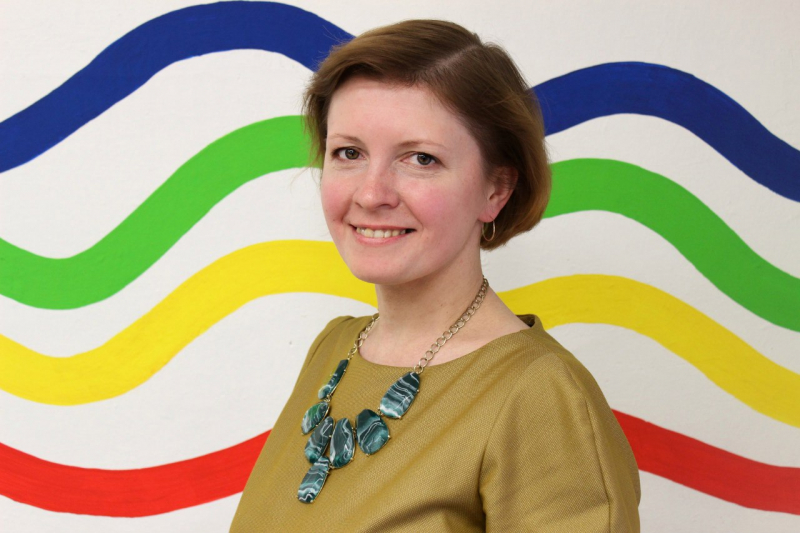
For us, the online conference is a new and positive experience and we’re grateful to all the presenters and audience for participating, and for all the detailed material and interesting questions! I’m happy to note that participants of our laboratory spoke at many of the sessions, and it was really wonderful to hear presentations from other fields at our meetings.
Andrey Filchenkov, Associate Professor, Information Technologies and Programming Faculty
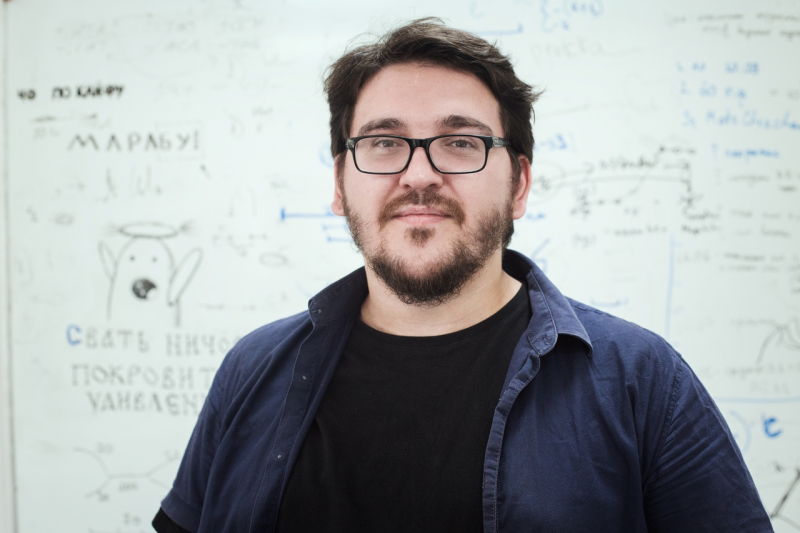
The new format didn’t spoil the conference, in fact it actually made it easier to organize the process and the quality of the presentations – especially because we asked them to record videos in advance. Also, the audience was able to participate more easily, since they didn’t have to get from one room to another within the university, but could just click on a link.
Elena Yanova, Associate Professor at the Faculty of Technological Management and Innovations
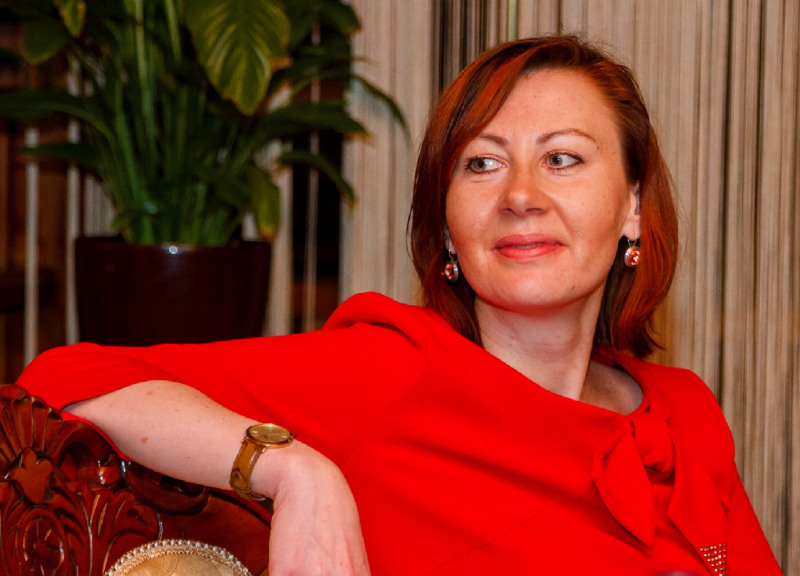
This format allowed students who were not confident about presenting to a large audience, to overcome these challenges and present their research results. In the future, I believe that this format is actually more preferable and convenient, especially given the current trends in society and a more widespread transition to using modern technologies.
